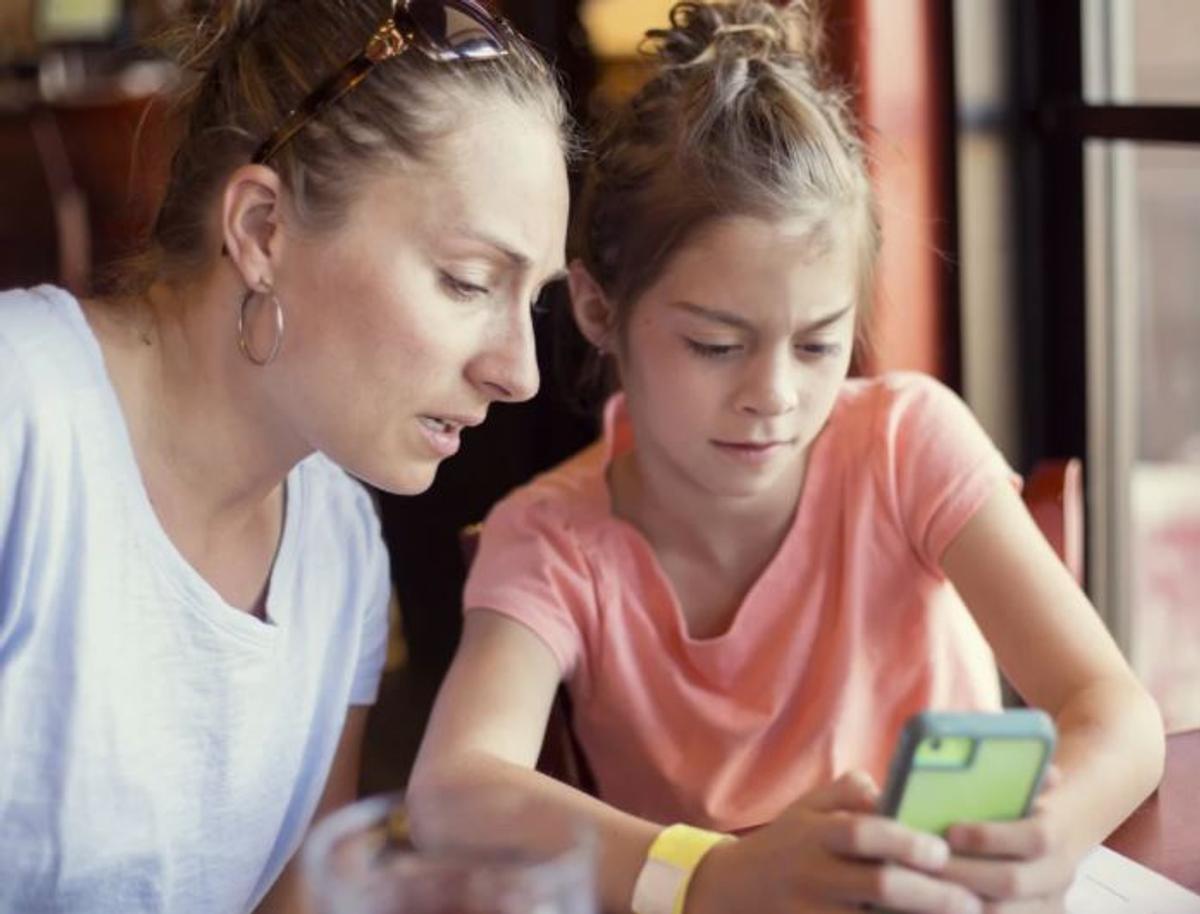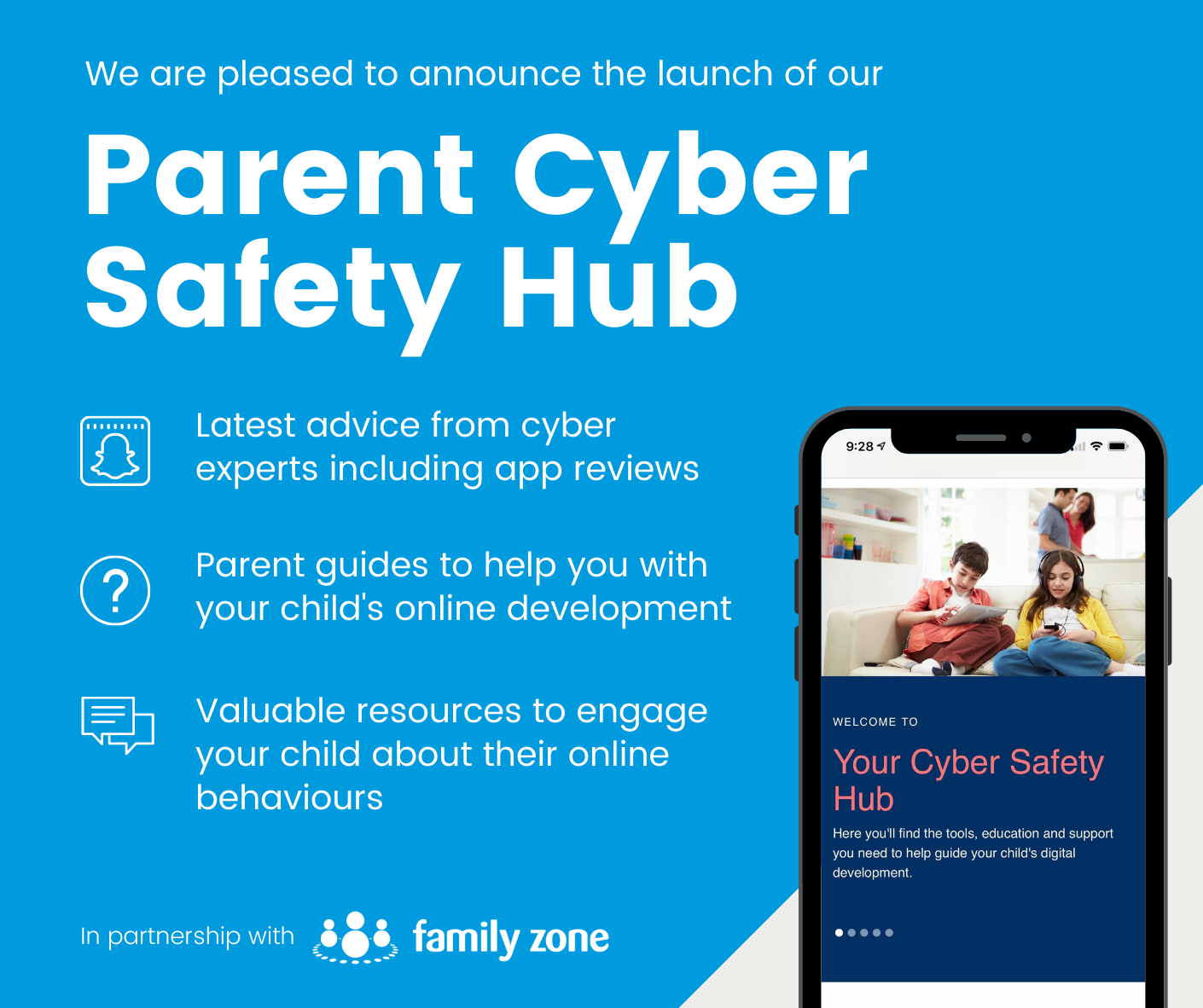Cyber Safety

Sure, your kids are tech-savvy. But what about their digital literacy?
We've all heard that digital literacy is something our kids need to learn.
But they already know more about navigating their devices than the grown-ups. So what are we meant to be teaching them that they don’t already know?
Plenty, say experts.
Think of it this way. Learning how to turn a key in the ignition and put your foot on the accelerator doesn’t make you a good driver. It’s the same with the technology our kids use to communicate and connect.
Sure, they can download a game and master its intricacies at warp speed. They can record, edit and upload videos in their sleep (literally, if you let them!). Maybe they have even learned the rudiments of coding to create their own games and sites.
But tech-savvy and digital literacy are two very different concepts.
Digital literacy, sometimes referred to as “digital citizenship,” is about the habits and values that support positive, kind and healthy online behaviour.
It’s also about the critical thinking skills kids need to evaluate the content they consume.
The best way to raise a digitally literate child, say experts, is to get in there early. Set limits, be a good role model, encourage questions and conversations, cultivate empathy, and explore ways to fact-check the content they consume and test the credibility of sources.
Let’s break it down.
Set limits
The first time you hand your child a device is the right time to begin limit-setting.
You’d never dream of introducing your toddler to chocolate ice-cream by presenting her with a two-litre tub and a spoon.
You’d emphasise that this is a privilege to be enjoyed in small portions, to be indulged only when the grownups say it’s okay.
Small children will accept adult-imposed limits on their use of screens in exactly the same way and in the same spirit. Time limits and content limits - this game, not that one; ABC Kids, not YouTube - are ways we protect our children.
And they are also ways we accustom them to accept our authority and our judgment when it comes to online activity.
Older kids can and should be involved in decisions around limit-setting - not just to ensure buy-in, but because they can genuinely contribute to your understanding.
Model balanced use
Granted, this is easier said than done - especially with more and more of us working from home. But it’s vitally important that your child sees that you too have boundaries on your screen-time.
That you leave the phone in another room at mealtimes. That you refrain from checking emails and social media when your kids are talking to you. That you’re not sitting up in bed staring at a glowing screen far into the night.
When it comes to technology, as with the rest of life, they will learn more from observing your actions than they will from your words.
Encourage questions
And ask them, too. An ongoing give-and-take about the online world is incredibly important when it comes to developing trust and supporting independent thinking.
Your children need to feel safe about coming to you with any uncomfortable experiences they may be having online. And they also need to know that you are there to share their joy when they have great experiences, whether because they’ve mastered a new level in a game or found a hilarious dog video.
Cultivate empathy
Kids who’ve learned kindness and compassion can identify with the feelings of people around them. They are far less likely to engage in cyberbullying or online harassment, and far more likely to be upstanders, not bystanders, in support of victims.
Develop critical thinking skills
Kids who don’t think critically about the images and words they encounter online will be vulnerable in so many ways.
Just think about all the adult social media users who have fallen prey to misinformation and conspiracy theories about COVID. They haven’t learned how to fact-check or to evaluate the credibility of sources. They believe if they see it on Facebook it must be true.
Teach them instead to use their CRAP detectors - asking:
- Is this information current? - C
- Is the source reputable? - R
- Who is the author and what are their qualifications? - A
- What is the purpose of this info - News? Opinion? Marketing? - P
Above all, don’t make the mistake of confusing your kids’ online skills - which are probably already top-notch - with their online maturity, judgment and balance. That’s what digital literacy is all about, and that’s where you, as the parent, are the real expert.
Reference: https://www.familyzone.com/anz/families/blog/kids-tech-savvy-digital-literacy
Check out our Cyber Safety Hub
We are delighted to introduce you to a new resource made available to you through our partnership with Family Zone - our new school Cyber Safety Hub.
As you may already be aware, our partnership provides your family with access to the Family Zone tools to use at home with your children if you wish. The purpose of the Cyber Safety Hub is to complement those tools with practical guidance and information to further support you in engaging with your children in their digital development. These tools and resources also allow the school and parent body to work together on creating a holistic approach to guiding each student's online journey.
You can access the Cyber Safety Hub using the link below:
https://johnxxiii.cybersafetyhub.com.au/
About the Parent Cyber Safety Hub
The Cyber Safety Hub includes resources to help your family better understand the different Family Zone tools available to you and how to use them, plus access to regular cyber safety events to help you stay informed about the latest digital trends.
Also, the Cyber Safety Hub provides expert advice from leading cyber experts, ySafe, on the most pertinent issues and frequently asked questions around platforms like TikTok, Fortnite, Instagram, and more. There are app reviews with age and safety recommendations, along with a range of guides to help ensure healthy boundaries around screen-time & gaming, plus step-by-step instructions for using parental controls and filtering out inappropriate content.
We are very excited to be able to offer you this level of expertise and support. We look forward to working closely with you as we develop the cyber safety conversation within our school community.



